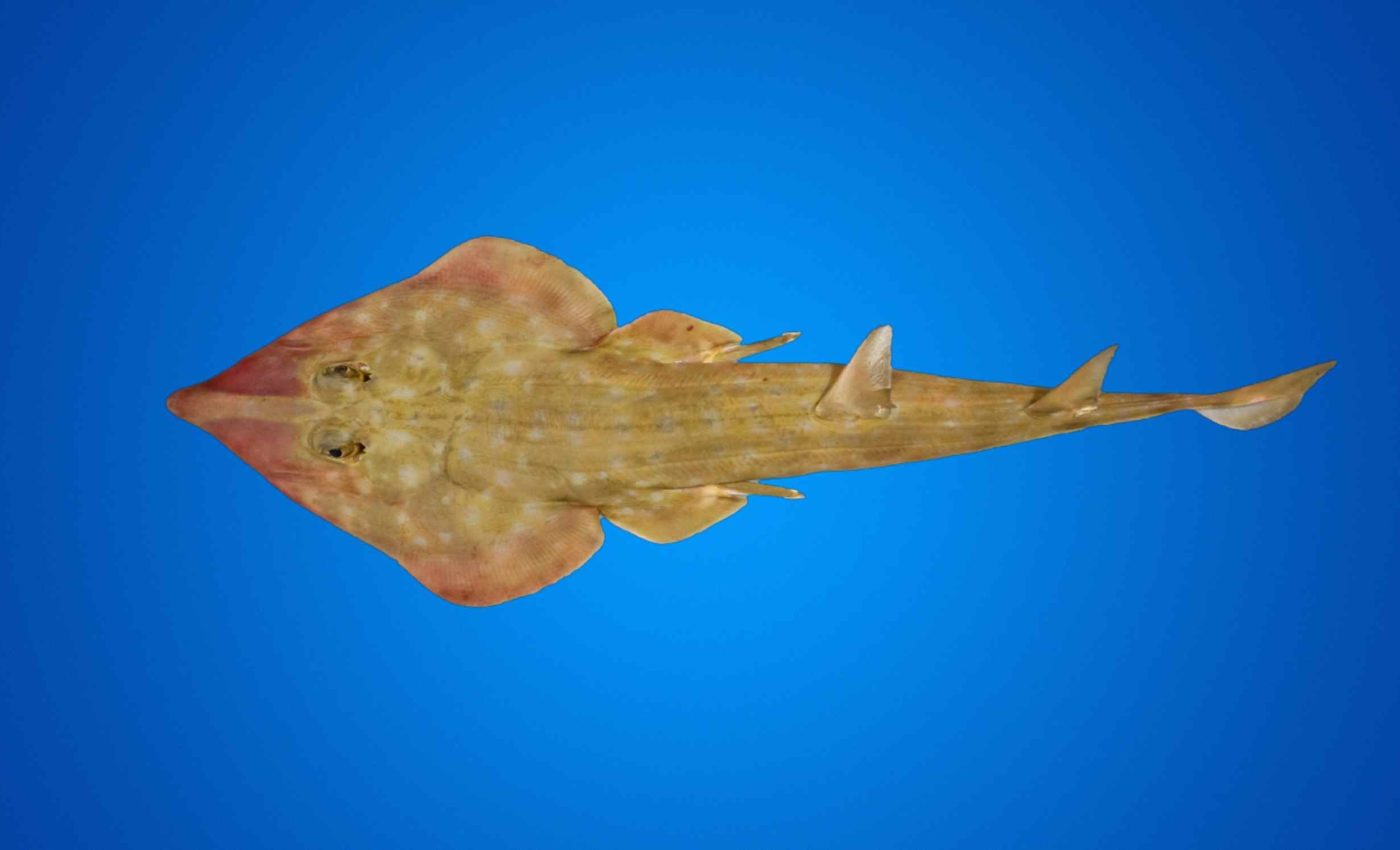
Guitar-shaped ray species, discovered for the first time, lives in the deep ocean
A massive exploration of ocean life has revealed 866 new species that most people never knew existed. This achievement ranks among the largest efforts ever to document organisms dwelling in some of the most secluded underwater zones.
Many surprises have surfaced from these findings, including a curious new guitar shark species.
This creature was first recorded at approximately 650 feet below the surface by David Ebert, the “Lost Shark Guy” from the Pacific Shark Research Center at Moss Landing Marine Laboratories (MLML).
Hidden marine species among ocean life
“The ocean covers 71% of our planet, yet it is said that only around 10% of marine life has been discovered so far, leaving an estimated 1-2 million species still undocumented,” said Executive Director Mitsuyuki Unno of The Nippon Foundation representing the founding partner of the Ocean Census. “
“These latest findings demonstrate how international collaboration can advance our understanding of ocean biodiversity.”
Experts say learning about unexplored species can spark fresh approaches to conservation. Documenting them quickly is critical since cataloguing can take over a decade, which creates risks for vulnerable marine creatures.
A snail with hidden value
A standout discovery involves the turrid gastropods known as Turridrupa magnifica. It was found between about 650 and 1,600 feet in waters off New Caledonia and Vanuatu.
Scientists note these snails carry venomous barbs used to capture prey, and related snail compounds have inspired pain relief drugs, including some tested for cancer treatment.
Its potential medical applications symbolize the practical significance of identifying new lifeforms.
Locating rare species can lead to breakthroughs in human health, especially if researchers can examine the biochemical secrets behind their survival.
A fresh octocoral in the Maldives
A newly found Octocoral genus in the Maldives drew excitement from specialists at the Maldives Marine Research Institute.
This is the first known record of its type in that area. Octocorals help shore up reef structures and create habitats for countless fish and invertebrates.
Additional research could clarify how these corals protect shorelines from erosion and benefit local fisheries. They highlight the functional roles that relatively unknown organisms can play in underwater ecosystems.
Understanding the new marine species
“Too many species remain in limbo for years because the process of formally describing them is too slow,” stated Prof. Lucy Woodall, Head of Science at Ocean Census.
“We urgently need to change that and adding the Species Discovery step gives us a way to rapidly start the process. Every new species – whether a shark or a sponge – deepens our understanding of marine ecosystems and the benefits they provide for the planet.”
Taxonomists are taking new steps to expedite this framework by adding interim documentation. The Ocean Census Biodiversity Data Platform allows researchers and the public to see entries while more detailed scientific descriptions continue behind the scenes.
Refining the global mission
“We’ve pioneered new methods, forged key partnerships, established a global network of participating scientists, and overcome the hurdles of a truly global mission,” said Oliver Steeds, Director of the Ocean Census.
Steeds also suggests, “We are laying the groundwork to make large-scale species discovery a reality, but our impact will ultimately be determined by how this knowledge is used to support marine protection, climate adaptation, and biodiversity conservation.”
Leaders of the Ocean Census maintain that collaborative strategies are vital. Collective efforts from more than 400 institutions feed into this decentralized network.
By grouping different skill sets and resources, they cut the time required to identify new lifeforms in waters from the tropics to the icy poles.
Uniting innovators and organizations
“Schmidt Ocean Institute is proud to be a partner of the Ocean Census, whose strength lies in its vast network,” said Executive Director of Schmidt Ocean Institute, Jyotika Virmani.
“By uniting governments, philanthropic supporters, and leading marine research organizations, we can accelerate the discovery of ocean life at an unprecedented scale,”
Research institutes, philanthropic foundations, and government agencies are aligning to explore areas that have never been systematically sampled.
These partnerships allow scientists to map remote habitats with advanced tools, gather specimens with submersibles, and build shared databases for faster and more accurate species registration.
Looking ahead: Ocean and marine life
The campaign plans to keep expanding its scope. More expeditions and workshops are slated for 2025, stretching from the Pacific to the Indian and Southern Oceans.
Their findings will funnel into the network’s biodiversity platform, reinforcing collective knowledge of hidden ocean life.
Experts stress the importance of channeling these discoveries into actions that protect fragile habitats.
Once researchers confirm a species, that opens doors for environmental policies tailored to safeguard threatened populations or preserve essential ocean corridors.
New developments at the frontier of taxonomy also create opportunities for local communities.
Some of these waters serve as essential fishing grounds, so tracking new inhabitants can shed light on how to maintain long-term sustainability.
This study was published in the Ocean Census.
—–
Like what you read? Subscribe to our newsletter for engaging articles, exclusive content, and the latest updates.
Check us out on EarthSnap, a free app brought to you by Eric Ralls and Earth.com.
—–













